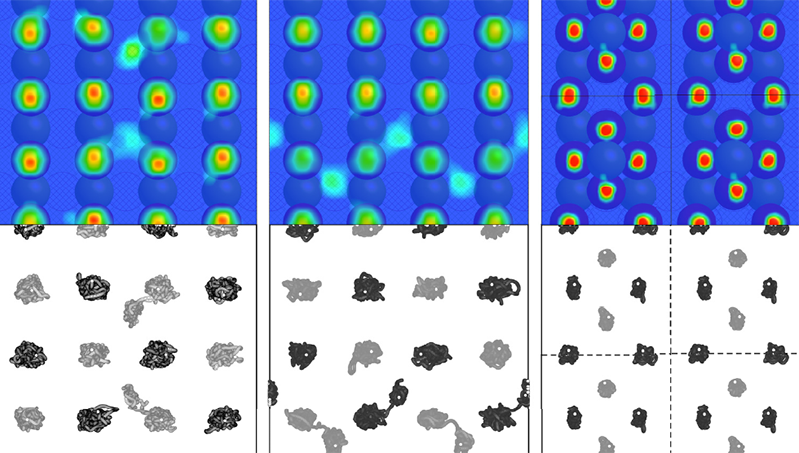(Via ICIQ)
The research group of Núria López has published a paper in Nature Materials explaining how massive simulations prove that certain surfaces are more disordered than previously thought. Prof. Núria López is a researcher in the Institut Català d’Investigació Química (ICIQ) and user of the Spanish Supercomputing Network.
Surface terminations are responsible for the chemical and physical properties of materials. Understanding them is key to predict their behaviour so they can be tuned to our needs. New computational calculations reveal that reality is more complex than expected and disorder is intrinsic for certain materials. This discovery can contribute to improve the properties of certain materials used in fuel cells or in car catalysts to remove the pollutants, thus improving the air quality.
The research group has performed more than 50000 massive simulations in the MareNostrum supercomputer at the Barcelona Supercomputing Center, to introduce all the complexity in these systems. Thanks to supercomputing, researchers were able to quantify the stabilization of polar surfaces derived from surface disorder, which appears as a consequence of the elimination of half of the surface oxygen atoms to ensure charge balance.
The work published in Nature Materials describes why and how the surface atomic reorganization for polar surfaces takes place. Based on the concept of configurational entropy, ICIQ researchers could classify different surface rearrangements according to their stability. They also demonstrated that CeO2 surfaces are dynamic and the rearrangements are interchangeable. The new terminations show different patterns on the materials surface, affecting their mechanical and catalytic properties and their properties as sensors.
Article reference and picture: Capdevila-Cortada, Marçal, and Núria López. "Entropic contributions enhance polarity compensation for CeO2 (100) surfaces." Nature Materials (2016).
